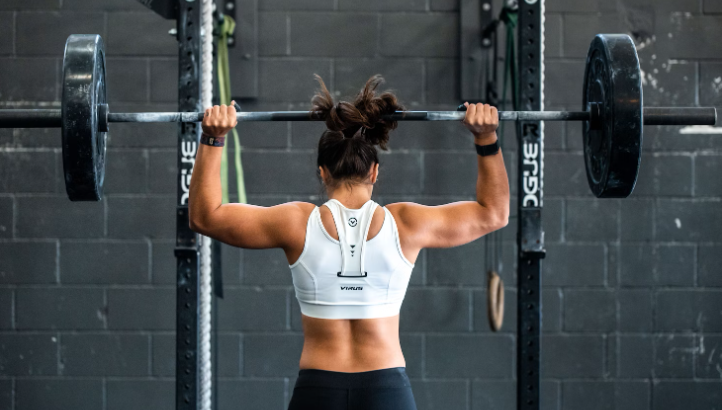Sports have long been a source of entertainment and competition around the world. However, sports can also be an effective tool for enacting social change and strengthening communities when utilized properly. This article explores the many ways that sports can drive positive impacts beyond mere entertainment value.
Promoting Health and Wellness Through Sports Participation
Participating in sports activities provides many physical, mental, and social benefits that contribute to overall health and wellbeing. Sports help develop important life skills such as teamwork, leadership, discipline, and confidence. The exercise gained through sports improves cardiovascular health, builds muscle, improves coordination, and prevents various chronic illnesses. Sports also help relieve stress, anxiety, and depression.
Furthermore, participation in sports fosters social connections and relationships. Playing on a team allows kids to make new friends and interact with peers. Sports transcend barriers of race, religion, and socioeconomics as teammates bond over their shared interests. The social support gained through involvement in sports increases overall wellbeing. In this way, expanding access and opportunities for recreational and organized sports participation provides tangible benefits for both individuals and communities.
Participating in sports activities, whether recreational or organized, provides myriad benefits for physical, mental, and social health. Sports help drive community development by improving wellness and fostering social connections across demographics.
Using Sports to Empower Girls and Women
Sports have historically been male-dominated spaces, but initiatives focused on increasing female participation in athletics serve to empower women and girls. Playing sports enhances self-esteem, confidence, and leadership skills. Athletes are role models with significant cultural influence, and increased representation of female athletes challenges outdated gender stereotypes.
Nonprofits like Women Win utilize sport to empower girls and women in disadvantaged communities around the world. Access to sports and exercise allows women to build social networks, feel ownership over their bodies, and gain transferable life skills. Campaigns like “Let Her Play” raise awareness on the barriers keeping girls from participating in sports, which negatively impacts their education and wellbeing. Ensuring girls have opportunities in athletics leads to positive health and educational outcomes, making communities more equitable.
Empowering girls and women through sports participation challenges gender norms, builds confidence and skills, and enables better health and educational outcomes in disadvantaged communities.
Fostering Social Inclusion with Adaptive Sports Programs
Adaptive sports programs for people with disabilities facilitate social inclusion and accessibility. Sports provide a sense of community for groups that often feel isolated. Playing adaptive sports improves self-esteem and independence for people with disabilities. Athletes become advocates raising awareness on accessibility issues.
The Paralympic Movement showcases inspiring athletes with a range of physical disabilities. Veterans use adaptive sports programs like golf and sled hockey as tools for rehabilitation and community reintegration. Unified sports teams pair people with and without intellectual disabilities to foster understanding and friendship through shared athletic experiences. Expanded adaptive sports opportunities help make communities more accessible and inclusive.
Adaptive sports programs facilitate valuable social inclusion, rehabilitation, and advocacy for people with disabilities, improving accessibility and integration within communities.
Sport as a Means of Community Development
Many star athletes have leveraged their platform and resources to support community development efforts. The table below highlights some of the initiatives led by prominent athletes:
| Athlete | Initiative/Contribution | Location/Community Targeted |
| LeBron James | Founded the I Promise School to help at-risk children earn an education | Akron, Ohio |
| Steph & Ayesha Curry | Provides youth in the Bay Area with resources to help transform their lives | Bay Area, California |
| Serena Williams | Donated to build schools through Build African Schools | Various developing nations |
| Kobe Bryant | Led youth programs using sports as a vessel to mentor kids and strengthen communities | Various communities |
| David Beckham | Invested in initiatives that use sports to empower youth | Global initiatives |
| Cristiano Ronaldo | Supported various charitable efforts related to children’s hospitals and cancer research | Global initiatives |
| Lionel Messi | Established the Leo Messi Foundation to support access to education and healthcare | Global initiatives |
| Simone Biles | Involved in programs that promote sports and physical activity among youth | Various communities |
When players give back, they set an example of service that motivates fans to also become more engaged citizens. Their contributions demonstrate how sports can be a powerful tool for social change and community development, extending far beyond the realm of entertainment.
All in all , Sports have the power to unite people across racial, religious, and socioeconomic lines unlike any other area of society. Sports are unique in their ability to transcend differences and bring people together around shared passions. That power can be harnessed to enact meaningful change. Thoughtfully designed sports programs and initiatives leverage that cultural influence to strengthen communities.Beyond providing entertainment, sports are tools to empower marginalized groups, promote inclusion and accessibility, spread sustainability, and mobilize civic action.
